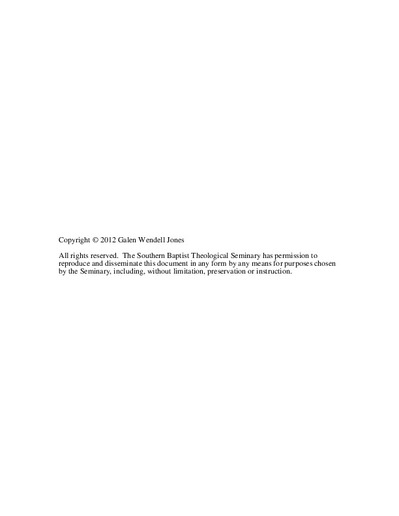A Theological Comparison Between Social Science Models and a Biblcal Perspective of Servant Leadership
Abstract
This dissertation examines servant leadership and its biblical antecedents with
from specific biblical texts and non-biblical literature. Chapter 1 introduces the research
concern that the Bible presents a comprehensive servant theology that is consistent
through both Testaments. As well it introduces the idea that servant leaders are slaves of
God, servants to the Body of Christ, and Ambassadors to the world.
Chapter 2 explores servant leadership theory by connecting the theory to its
biblical origins. It presents a biblical theology of servant leadership utilizing the lens of
biblical slavery as a model for Christian leadership discovered in Mark 10:42-45 as well
as introducing the Christological paradox: “power through powerlessness.”
Chapter 3 examines social science perspectives of servant leadership. While
tracing the development of the theory through the writing of Robert K. Greenleaf and
through conducting a critical probe of Greenleaf’s attempt to blend Eastern spiritualism
with secular humanism, and Christianity.
Chapter 4 addresses the categorical differences between a biblical worldview
and the worldview of the social sciences in servant leadership research. Further, it delves
into the work of Larry C. Spears, Kathleen A. Patterson and others in the social sciences
who have proposed various models and theories of servant leadership.
Chapter 5 examines Walter C. Kaiser’s Principilizing Model for moving beyond theology to propose a means to discover biblical principles of servant leadership
as well as offer suggestions for future research.

